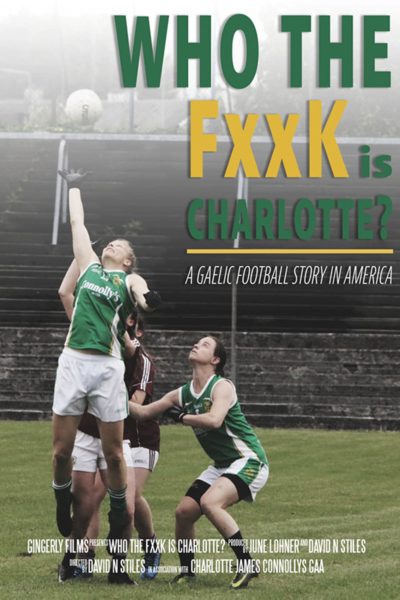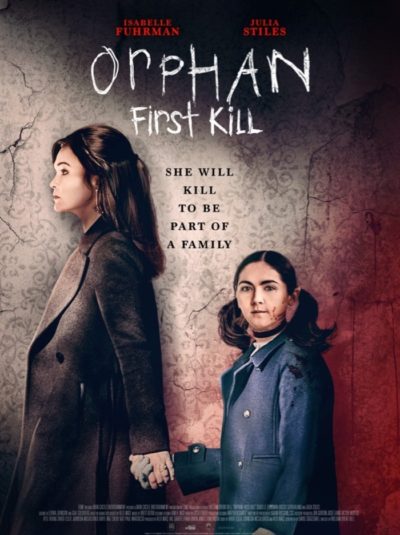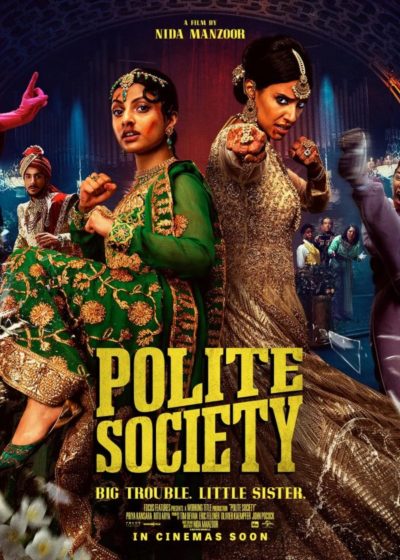With this read of the fourth (in the Lincoln Square Books numbering) installment of the author’s Kim Oh series, I’ve now read all of the volumes that are currently available in paper format. All of the previous ones have earned high ratings from me, despite some flaws that can mostly be summarized as continuity or editing issues; it’s fair to say that this is one of my favorite action-adventure series, and I’m definitely a fan of the heroine. This particular book, however, proved to be the weakest of the series so far, and really only mustered two and a half stars in my estimation. The main drawbacks here only become really evident on reflection after the read, or at the very end, so all through the read itself I did enjoy the experience.
Korean-American (though, as we learned in the previous book, she and her brother are only half Korean in their ancestry) protagonist and first-person narrator Kim, as series fans will already know, is the guardian and caretaker of her wheelchair-bound younger sibling Donnie. Not able to pay for their food and rent as a bookkeeper (she’s good at it, but not very credentialed) the series opener showed how, by a believable story arc, she opted for a career change as a hired gun. She’s occasionally a paid assassin (though, as she says, only of “the kind of creeps on which there was a general consensus that if they stopped breathing, it’d pretty much be an improvement to the world;” she does have ethical “standards” for herself, and Jeter doesn’t directly depict that side of her work), but mostly as a bodyguard or “security” for employers whose business interests may attract violent hostiles. They tend to be shady types (whom she doesn’t much like or respect), and job security isn’t very dependable.
When our story opens, some two months have passed since the previous book. Kim’s now about 20, and Donnie around 14 (the ages aren’t explicitly stated, but inferred from time progressions from book to book). Since her former boss didn’t survive the previous adventure (and had fired her anyway), she’s been between jobs since then, and her savings are dwindling. Now, however, an opportunity knocks. A wealthy but sleazy tycoon wants to hire her to accompany his college-student daughter to fictional Meridien (supposedly the smallest country in South America) for spring break. This won’t (so he says) be a very taxing job; Lynndie Heathman doesn’t so much need a bodyguard as a kind of glorified nanny to keep her out of serious trouble. So, Kim’s soon flying to Meridien –with Donnie in tow, albeit against her druthers.
 She’s reluctant to bring him anywhere near the sybaritic conditions that await them; but although he’s able to look after himself for awhile if he needs to (and has, at times), as he pointed out, Child Protective Services knows she’s landed this job and won’t look kindly on him being left to his own devices for this long. (And she doesn’t plan on letting him participate in any drunken orgies!) Knowing the kind of intense searches today’s airplane travelers are subjected to, she’s opted not to bring along a gun. But, hey, it’s not as if any danger is likely to present itself on this gig, right? (I was reminded of the Robert Burns poem about “best laid plans….”) On the flight, Donnie strikes up an acquaintance with Mavis, a full-scholarship anthropology student who’s headed for Meridien on her department’s nickel, not to party but to do research, and who’s (like him) more than a little tech-savvy.
She’s reluctant to bring him anywhere near the sybaritic conditions that await them; but although he’s able to look after himself for awhile if he needs to (and has, at times), as he pointed out, Child Protective Services knows she’s landed this job and won’t look kindly on him being left to his own devices for this long. (And she doesn’t plan on letting him participate in any drunken orgies!) Knowing the kind of intense searches today’s airplane travelers are subjected to, she’s opted not to bring along a gun. But, hey, it’s not as if any danger is likely to present itself on this gig, right? (I was reminded of the Robert Burns poem about “best laid plans….”) On the flight, Donnie strikes up an acquaintance with Mavis, a full-scholarship anthropology student who’s headed for Meridien on her department’s nickel, not to party but to do research, and who’s (like him) more than a little tech-savvy.
We’ll see more of her (long story!). Jeter doesn’t explicitly establish her age, either (and that’s going to be an important detail, in my estimation!) We only know that she’s not old enough to drink, “Even for here;” if the drinking age there is 18, I’d guess she’s 17. (Kim noted that she seemed younger than the rest of the college crowd, and refers to her once as underage.) Some teens enroll in college early (and dual enrollment programs for high school juniors and seniors exist at a number of colleges); but this should have been explained, and I can’t think that she could be any younger than 17.
We’re not surprised when this expedition goes south (in more ways than the geographically obvious one!) early on. This tale is an excursion into the darker recesses of what human nature is capable of, though there’s light in the darkness. With a time span of just a few days, the plotting is taut and the pace mostly quick (it slows a bit in the middle, only because it has to). As always, Jeter handles action scenes well, and the setting is evoked effectively. Kim’s her usual self, and for series fans her wry, snarky narrative voice (with a chip on the shoulder as far as wealthy, entitled snobs are concerned, but given her circumstances, it’s hard to blame her) comes across much like her sitting down with you as an old friend she trusts completely, kicking back over a cup of tea and recounting her experience.
And along the way, there are the revealing moments that show her inner dissatisfaction with aspects of her present life, and her yearning for more normality and human connection; she’s a three-dimensional person who comes across as just as human as you or I, and that’s no mean literary achievement. A couple of plot elements show significant authorial research (smoothly integrated); and Donnie and Mavis’ video technology know-how will come in handy. There’s no explicit sex; and while there’s some h- and d- words and religious profanity, which I didn’t like, there’s no obscenity and the language is in the bounds of realism with a degree of tasteful restraint. You can expect some violent deaths, and you’ll encounter one grisly image in particular that even had Kim “a little nauseated;” but the grisliness isn’t any worse than it has to be.
What pulled my rating for this installment down wasn’t the kind of continuity and editorial issues some earlier ones had; those weren’t present here. But there were more serious basic logical issues. In the first place, the main villains here acted in a way that was (from their standpoint) highly unnecessary and unwise, against their own interests, and that’s just papered over in the apparent hope that we won’t notice. But that creates a logical hole you could drive a fleet of trucks through. Secondly, Kim’s plan at the end completely depends on somebody else acting in a certain way in two respects, one of which was likely enough but not guaranteed, and the other of which was IMO actually quite unlikely. Things fell into place here because she had the author pulling strings on her behalf, but in real life that factor wouldn’t be present.
Kim also came across as uncharacteristically naive in accepting the supposed lack of danger in this job so uncritically; and later she made one error of judgment that immediately set off even my warning bells. (Her late mentor Cole would have chewed her out royally!) Finally, Jeter introduces one or two intriguing mystery elements in the first chapter –and soon drops them completely down the memory hole. :-( Another major negative (for me) appeared only in the final paragraphs. For that reason, it might be spoilerish to discuss it here, though it isn’t a spoiler for anything to do with the main plot. But despite these negatives, I’d still recommend the book to most fans of the series.
Author: K. W. Jeter
Publisher: Lincoln Square Books; available through Amazon, both for Kindle and as a printed book.
A version of this review previously appeared on Goodreads.
 I stumbled across this entirely by accident, Tubi’s autoplay feature putting it on after watching some World Cup highlights. But the start was intriguing enough to keep me watching, and turned out to be a really good documentary, even if the story is a bit clichéd. The original title was the rather more forthright, Who the Fxxk is Charlotte? and that sums up the approach here. Any viewers with an aversion to strong language should not apply. It’s the story of the Charlotte, North Carolina women’s Gaelic football team, and their quest to win the national title. Gaelic football? Yes: an Irish sport, which combines elements of football and rugby. In Ireland, it’s close to a religion with fierce rivalries that go back to the 19th century.
I stumbled across this entirely by accident, Tubi’s autoplay feature putting it on after watching some World Cup highlights. But the start was intriguing enough to keep me watching, and turned out to be a really good documentary, even if the story is a bit clichéd. The original title was the rather more forthright, Who the Fxxk is Charlotte? and that sums up the approach here. Any viewers with an aversion to strong language should not apply. It’s the story of the Charlotte, North Carolina women’s Gaelic football team, and their quest to win the national title. Gaelic football? Yes: an Irish sport, which combines elements of football and rugby. In Ireland, it’s close to a religion with fierce rivalries that go back to the 19th century.  The Charlotte club was formed in 2000, and based on what we see here, is as much a social organization as a sports club. There does appear to be quite a lot of consumption of adult beverages. But there’s no doubt, they take the sport seriously, and recruit from all round the area, both Irish and American players. On North America, teams can bring in experienced players from Ireland, known as “sanctions”, to help grow the sport. But some clubs do that to excess: Charlotte refuse to go that route, putting their team at a potential disadvantage compared to Boston, or their arch-rivals from San Francisco, the Fog City Harps. The film follows Charlotte as they develop their team, and take part in the 2016 and 2017 senior women’s tournament, for the best sides in North America.
The Charlotte club was formed in 2000, and based on what we see here, is as much a social organization as a sports club. There does appear to be quite a lot of consumption of adult beverages. But there’s no doubt, they take the sport seriously, and recruit from all round the area, both Irish and American players. On North America, teams can bring in experienced players from Ireland, known as “sanctions”, to help grow the sport. But some clubs do that to excess: Charlotte refuse to go that route, putting their team at a potential disadvantage compared to Boston, or their arch-rivals from San Francisco, the Fog City Harps. The film follows Charlotte as they develop their team, and take part in the 2016 and 2017 senior women’s tournament, for the best sides in North America. 




 This is a very small-scale and restrained production, which unfolds, largely in real time, over one afternoon in the single location of a cross-fit gym. Athlete Sam (Jerue) is set for an attempt to see five world records in a 30-minute span, supported by her trainer Shane (Grosse) and under the eagle eye of adjudicator Alec (Sawyer) – it’s clearly intended to be the Guinness Book of World Records, but their name is never mentioned! However, a fly in the ointment shows up, just minutes before Sam is scheduled to start. Her husband, Charlie (Kershisnik), from whom she is currently separated, arrives at the gym, followed rapidly by Sam getting served with divorce papers, in what can only be called a dick move.
This is a very small-scale and restrained production, which unfolds, largely in real time, over one afternoon in the single location of a cross-fit gym. Athlete Sam (Jerue) is set for an attempt to see five world records in a 30-minute span, supported by her trainer Shane (Grosse) and under the eagle eye of adjudicator Alec (Sawyer) – it’s clearly intended to be the Guinness Book of World Records, but their name is never mentioned! However, a fly in the ointment shows up, just minutes before Sam is scheduled to start. Her husband, Charlie (Kershisnik), from whom she is currently separated, arrives at the gym, followed rapidly by Sam getting served with divorce papers, in what can only be called a dick move.  I’ve no problem per se with faith-based cinema. My main issue is that they tend to be, literally, preaching to the converted, and if you’re not already on board, they tend not to work, purely from a cinematic perspective. There are exceptions:
I’ve no problem per se with faith-based cinema. My main issue is that they tend to be, literally, preaching to the converted, and if you’re not already on board, they tend not to work, purely from a cinematic perspective. There are exceptions:  As the title suggests, this is one of those literary mash-ups, similar to
As the title suggests, this is one of those literary mash-ups, similar to 
 I’ve not seen the original Orphan. I suspect this does not matter very much, since what we have here is a prequel. I will admit to having been lured in by the barking mad central idea. It does justice to the lunacy, though can’t sustain itself entirely, and at least somewhat collapses under its own weight. We begin in Estonia, where Leena (Fuhrman) is a very, very angry 31-year-old. Not without justification, being trapped in a 9-year-old’s body due to a hormonal condition. Previous violence has got her committed to a secure facility, but Leena breaks out and decides to adopt the identity of Esther Albright, an American child who went missing years previously.
I’ve not seen the original Orphan. I suspect this does not matter very much, since what we have here is a prequel. I will admit to having been lured in by the barking mad central idea. It does justice to the lunacy, though can’t sustain itself entirely, and at least somewhat collapses under its own weight. We begin in Estonia, where Leena (Fuhrman) is a very, very angry 31-year-old. Not without justification, being trapped in a 9-year-old’s body due to a hormonal condition. Previous violence has got her committed to a secure facility, but Leena breaks out and decides to adopt the identity of Esther Albright, an American child who went missing years previously.  There’s a lot to admire about this South Korean film, though a couple of fumbles stop it from achieving the heights it threatens to do. You’d be forgiven for thinking it’s a knock-off of Kill Bill going by the title. But it’s as much a pun on the name of the heroine, Gil Bok-soon (Jeon). She has been an assassin since she was 17, and has worked her way up to be the top employee of the MK. ENT corporation, run by Cha Min-kyu (Sol). They are one of a number of competing companies offering killers for hire, but to ensure standards, certain common rules have been agreed, e.g. no kids, and are adhered to by all. Well… Kinda…
There’s a lot to admire about this South Korean film, though a couple of fumbles stop it from achieving the heights it threatens to do. You’d be forgiven for thinking it’s a knock-off of Kill Bill going by the title. But it’s as much a pun on the name of the heroine, Gil Bok-soon (Jeon). She has been an assassin since she was 17, and has worked her way up to be the top employee of the MK. ENT corporation, run by Cha Min-kyu (Sol). They are one of a number of competing companies offering killers for hire, but to ensure standards, certain common rules have been agreed, e.g. no kids, and are adhered to by all. Well… Kinda… Sitting somewhere between
Sitting somewhere between  This is another example of someone simply trying to do too much on their movie. For Linch not only starred in, produced and directed this, she also edited it, did the sound design and was the colourist. It’s not hard to predict her talents are not equally divided. It’s a shame, since I really wanted to enjoy this: much like its heroine, there’s a plucky, can-do attitude present, which can only be admired. Unfortunately, anyone above the age of eight is going to be quite hard-pushed to overlook the flaws. While the action is not especially one of those, the volume there is underwhelming, and the romantic, comedic and dramatic elements are hugely variable, to put it politely.
This is another example of someone simply trying to do too much on their movie. For Linch not only starred in, produced and directed this, she also edited it, did the sound design and was the colourist. It’s not hard to predict her talents are not equally divided. It’s a shame, since I really wanted to enjoy this: much like its heroine, there’s a plucky, can-do attitude present, which can only be admired. Unfortunately, anyone above the age of eight is going to be quite hard-pushed to overlook the flaws. While the action is not especially one of those, the volume there is underwhelming, and the romantic, comedic and dramatic elements are hugely variable, to put it politely. She’s reluctant to bring him anywhere near the sybaritic conditions that await them; but although he’s able to look after himself for awhile if he needs to (and has, at times), as he pointed out, Child Protective Services knows she’s landed this job and won’t look kindly on him being left to his own devices for this long. (And she doesn’t plan on letting him participate in any drunken orgies!) Knowing the kind of intense searches today’s airplane travelers are subjected to, she’s opted not to bring along a gun. But, hey, it’s not as if any danger is likely to present itself on this gig, right? (I was reminded of the Robert Burns poem about “best laid plans….”) On the flight, Donnie strikes up an acquaintance with Mavis, a full-scholarship anthropology student who’s headed for Meridien on her department’s nickel, not to party but to do research, and who’s (like him) more than a little tech-savvy.
She’s reluctant to bring him anywhere near the sybaritic conditions that await them; but although he’s able to look after himself for awhile if he needs to (and has, at times), as he pointed out, Child Protective Services knows she’s landed this job and won’t look kindly on him being left to his own devices for this long. (And she doesn’t plan on letting him participate in any drunken orgies!) Knowing the kind of intense searches today’s airplane travelers are subjected to, she’s opted not to bring along a gun. But, hey, it’s not as if any danger is likely to present itself on this gig, right? (I was reminded of the Robert Burns poem about “best laid plans….”) On the flight, Donnie strikes up an acquaintance with Mavis, a full-scholarship anthropology student who’s headed for Meridien on her department’s nickel, not to party but to do research, and who’s (like him) more than a little tech-savvy.